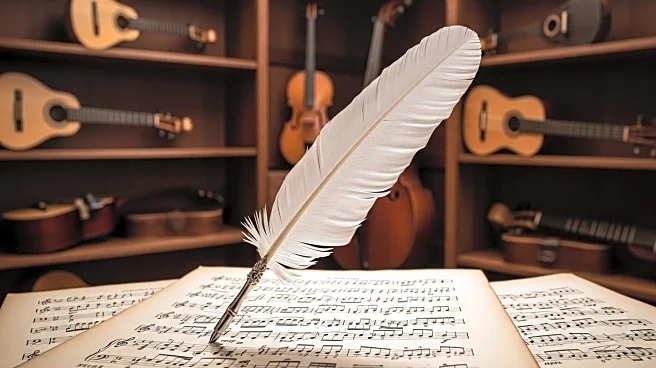What's Happening?
Musicologists have uncovered two significant musical works by the renowned 17th-century English composer Henry Purcell. The discoveries include a previously unknown song and a manuscript of keyboard compositions, partly in Purcell's own handwriting. These findings were made in Worcestershire and Norfolk archives, where they had been overlooked among routine administrative documents. The song, titled 'As soon as day began to peep,' was written for a 1691 play and has been reconstructed for performance. The keyboard manuscript, featuring nine pieces by Purcell and his contemporary John Blow, offers new versions of known works, providing insights into Purcell's musical style. These discoveries highlight the importance of local archives in preserving cultural heritage.
Why It's Important?
The discovery of new works by Henry Purcell is significant for the music world, as it sheds light on the composer's creative output during the last years of his life. Purcell is a pivotal figure in English music history, and these findings contribute to a deeper understanding of his work and influence. The reconstructed song and manuscript offer fresh material for performance and study, enriching the repertoire available to musicians and scholars. This event underscores the value of preserving and exploring historical archives, which can yield unexpected treasures that enhance cultural and academic knowledge.
What's Next?
The newly discovered works will be made available in digitized form by the Norfolk and Worcestershire archives, allowing wider access for study and performance. Further details on these findings will be published in a scholarly article, and the keyboard manuscript will be featured in an upcoming BBC Radio 3 program. These steps will facilitate ongoing research and appreciation of Purcell's contributions to music, potentially inspiring new interpretations and performances of his work.
Beyond the Headlines
The discovery of Purcell's works also highlights the challenges faced by local archives, which often struggle with funding cuts. This situation emphasizes the need for continued support and investment in preserving cultural heritage. The findings also illustrate the collaborative nature of musicology, involving experts from various institutions working together to unlock historical insights. Such efforts not only preserve the past but also enrich contemporary cultural landscapes.









